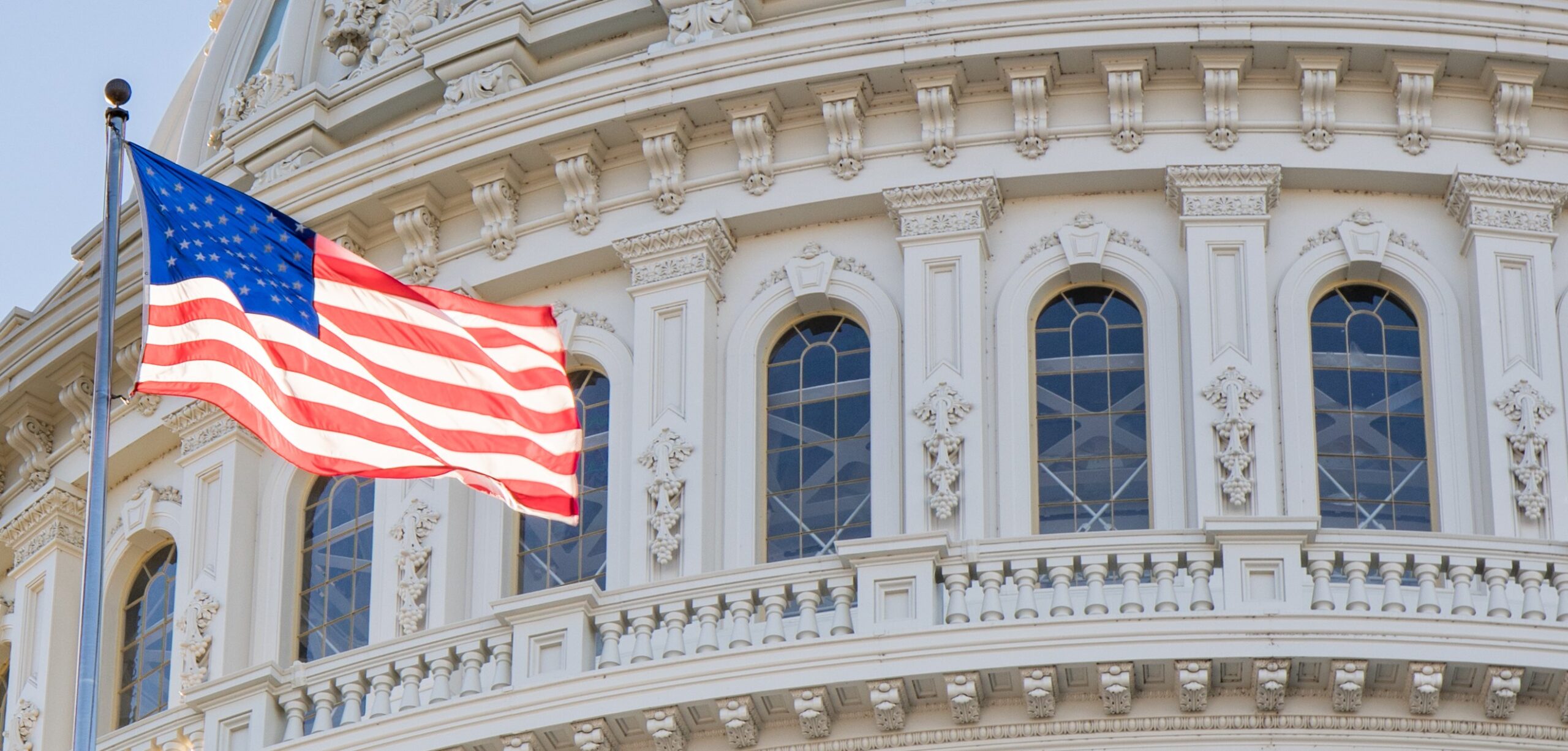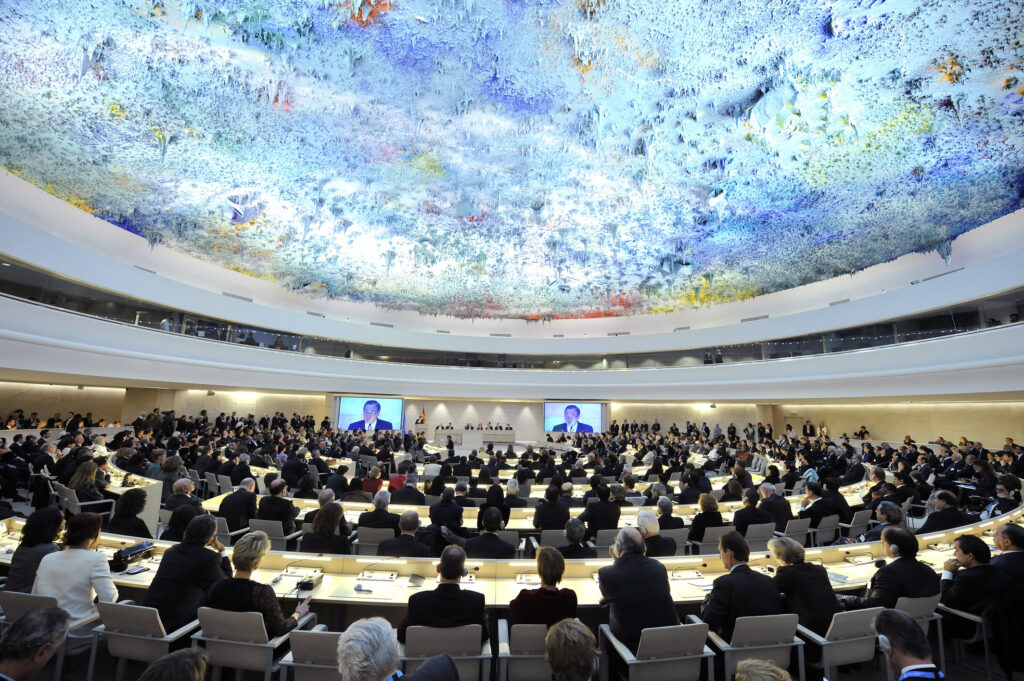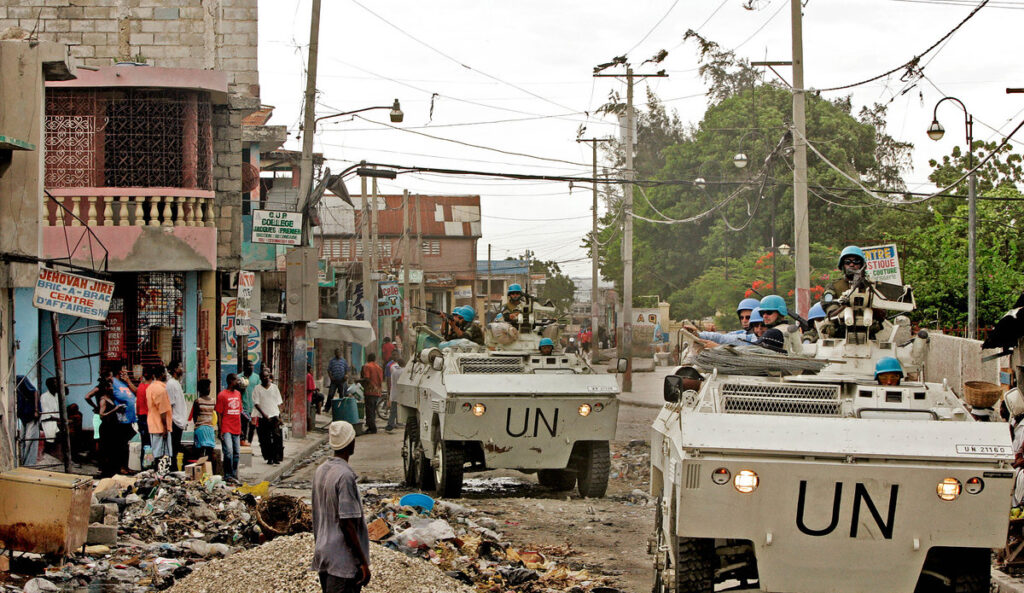In early June, the White House transmitted to Congress a sweeping $9.4 billion rescissions package — an attempt to claw back funds already appropriated and signed into law. While much of the attention has focused on domestic programs, buried in the proposal is a billion-dollar hit to U.S. support for the United Nations and its agencies.
The targets include U.S. funding for UN peacekeeping missions in the Democratic Republic of the Congo (DRC) and Lebanon, contributions to lifesaving humanitarian agencies like UNICEF and support for critical health organizations like WHO. If approved, these quiet cuts would be far-reaching — destabilizing fragile regions, worsening humanitarian crises and putting American lives at risk.
Here’s how.
Peacekeeping Cuts That Invite Instability
The rescissions package slashes over $361 million from FY24 and FY25 allocations to UN peacekeeping aimed at two key missions: MONUSCO in the DRC and UNIFIL in Lebanon.
MONUSCO is the backbone of international stability in central Africa’s Democratic Republic of Congo, a region rich in rare earth minerals vital to global industry — but also plagued by armed conflict. The mission has helped prevent the recurrence of full-scale war and facilitated regional diplomacy. It is also a critical part of U.S. efforts to keep the DRC from aligning with China and to safeguard American access to essential minerals for energy and tech manufacturing.
Notably, the Trump Administration has weighed in on the conflict in DRC, urging political dialogue between the country and neighboring Rwanda through a framework known as the Luanda Process. MONUSCO supports this process through ceasefire monitoring and humanitarian access. Gutting MONUSCO now would not only upend progress but also undermine stated U.S. objectives in the region.
UNIFIL, meanwhile, is one of the few stabilizing forces on the extremely volatile Israel-Lebanon border. For years, UNIFIL has supported the Lebanese Armed Forces, monitored the ceasefire with Hezbollah, and — crucially — convenes what’s known as the Tripartite Forum, the only regular meeting point for Israeli and Lebanese military officials. Removing 25% of UNIFIL’s funding at this sensitive juncture would dismantle a decades-old conflict prevention mechanism, potentially giving Hezbollah space to regroup and destabilizing both Israel’s northern frontier and the broader region at a time of historically high tensions.
Undermining Humanitarian Lifelines
The rescissions package also zeroes out all funding for the International Organizations and Programs (IO&P) account in FY25 — wiping out U.S. contributions to agencies like UNICEF, the UN Development Program (UNDP), the UN Population Fund (UNFPA) and the UN Office for the Coordination of Humanitarian Affairs (OCHA).
UNICEF, which delivers vaccines to nearly half the world’s children, saves three million young lives every year. It also provides critical services in places like Haiti, where gang violence and state collapse are fueling humanitarian crisis and migration to the U.S. With three million children in need, cutting UNICEF’s support could worsen regional instability and increase migration pressure on the southern U.S. border.
UNFPA, the UN’s Population Fund, has helped prevent 17,000 maternal deaths and nine million unplanned pregnancies over the past four years. UNDP provides electoral and governance support in 50+ countries annually. OCHA ensures aid reaches survivors of war and natural disasters. Cutting these agencies off would unravel a network of humanitarian response that often operates where the U.S. government cannot or will not.
Another little-known casualty would be the Montreal Protocol Multilateral Fund, a global environmental protection mechanism that helps countries phase out ozone-depleting chemicals. Its success has prevented millions of cancer cases and reduced global warming by up to 1.8 degrees Fahrenheit. In fact, the U.S. Senate ratified the treaty’s latest amendment just three years ago — with strong bipartisan support and backing from the U.S. Chamber of Commerce.
A Dangerous Retreat on Global Health
Lastly, the proposal strips more than $200 million in FY24 and FY25 funding from the Contributions to International Organizations (CIO) account — including all U.S. assessed funding to the World Health Organization in FY25.
With a presence in nearly every nation on Earth, WHO is the only multilateral body capable of coordinating the global response to disease outbreaks. It offers regulatory approval vital to U.S. vaccine manufacturers and helps combat polio, measles, cholera, malaria and other threats that know no borders. And it’s entire annual budget? Less than that of the Maryland Department of Health.
The Ball Is In Congress’ Court
While the rescissions package may have come from the Administration, it’s Congress who holds the power of the purse. And by law, they have just 45 days to act on the President’s request to cut these programs.
What’s on the chopping block? Funding they already debated, approved and signed into law.
The clock is ticking.
At a time of global upheaval — when wars are raging, humanitarian needs are rising and authoritarian regimes are gaining ground — now is not the moment to quietly step back.
And while many of these cuts won’t make headlines, they will make a difference. And not the kind we want.




